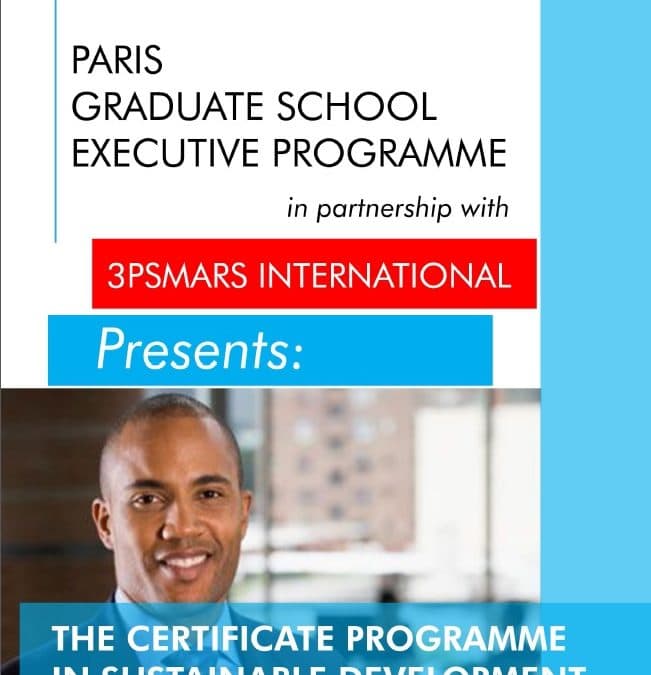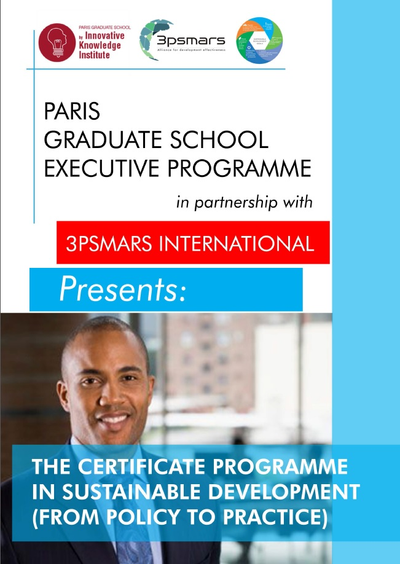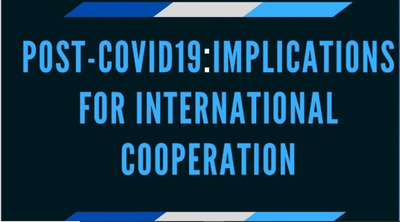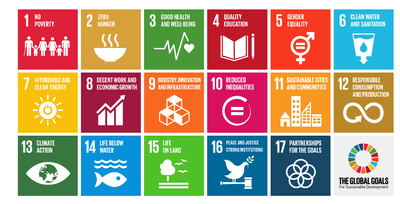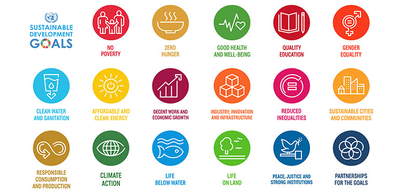PARIS GRADUATE SCHOOL IN PARTNERSHIP WITH 3PSMARS INTERNATIONAL, PRESENTS
THE EXECUTIVE CERTIFICATE PROGRAMME IN SUSTAINABLE DÉVELOPPEMENT (FROM POLICY TO PRACTICE)
BASIC INFORMATION
Duration: 30 Hours
Participants: The programme is designed for professionals, leaders and aspiring leaders, policy makers, experts, practitioners, students and members of the public who desire to sharpen their knowledge of Sustainable Development, the policy process, nature and practice of the subject as a concept and field of practice in international development, public policy and development management.
Requirement: First degree, evidence of enrolment in a degree programme in any discipline, work experience in relevant fields or proofs that the programme will contribute to participant’s professional development.
Award: Participants are awarded a ‘Certificate of Achievement’, highlighting their knowledge of the policy and practice of Sustainable Development. Students who want to continue in order to receive a “Diploma” on the same specialty will take extra Modules and hours for sufficient credits, with extra fees.
INTRODUCTION & OVERVIEW OF COURSE OBJECTIVES
Sustainable Development is broadly defined as the “development that meets the needs of present without sacrificing the ability of future generation to meet its needs” (UN Brundtland Report, 1987). As a concept in international development, it has grown to become an important political-economy instrument, not only for its multidisciplinary nature but also due to its ever increasing relevance to policy coordination and contribution to effective local, national, regional development management and administration systems, especially through the introduction of the Millennium Development Goals, replaced by Sustainable Development Goals (SDGs) since 2015.
Beginning from the 1972 UN Conference on the Human Environment, held in Stockholm, the awareness of the holistic nature of development issues (such as poverty, pollution, peace and security, health, economic development, water, sanitation, urban planning, biodiversity……etc) have expanded the coverage of the term and gave impetus to the above-mentioned generalist definition, which has been a subject of debate over the years. The advent of the SDGs as articulated in the Agenda 2030 for Sustainable Development as an umbrella Internationally Agreed Development Goals (IADGs) for the next 15 years also stressed its importance as a tool for management in international affairs, where the intertwining nature of challenges and solutions needs a coordinated approach and has resulted in many reform moves both at the level of the United Nations, Multilateral and Regional Organization and, at present and to a large extent, national and local approach to tackling development challenges, with corresponding public policies and action.
Most particularly, evidence shows that Sustainable Development, in the light of the Agenda 2030, represents a results framework and universal development objectives- as against the globalist structure of earlier IADGs. This fact has made the study and understanding of Sustainable Development as a concept, subject and area of practice very important for all spheres of professions with connections to public policy, management, governance and leadership, international development, business practice and corporate social responsibility.
This programme emphasizes the policy dimension of Sustainable Development as it applies across different subject, in the light of the intertwining economic, environmental, social, peace and security and other aspects of the subject. It is tailored to provide the necessary knowledge of how leaders and prospective leaders in the public, private and non-profit sectors can respond to the challenges and requirements of streamlining the results framework to institutional management and the capacity building to coordinate and manage the changes in the implementation of the SDGs by:
- Providing a better understanding of the complex challenges that society, organizations and individuals face as we tackle the challenges of sustainable Development.
- Complementing participants’ studies and experiences at whatever professional and education level they are through the learning of the science and policies that drive sustainable development and how leaders can work to achieve the United Nations Sustainable Development Goals.
- Introducing participants to the origin and key concepts of sustainability and how to apply them to sustainable development practice across board.
Professionals in or aspiring to leadership positions in all sectors (international organizations, private sector, governments, non-governmental organizations) will find the course useful for informed decision making on sustainable development and SDGs implementation and related issues.
COURSE CONTENTS
The Certificate Programme covers diverse range of topics, organized around the following broad modules:
Module 1: What is Sustainable Development?
This module focuses on introduction to key concepts in sustainable development, the debates around the definition and challenges to sustainable development. As a background to deepen understanding of the Subject, the module will introduce students to the Policy Framework of Sustainable Development from 1972 to date, as a means of studying the evolution of the policy process of Sustainable Development, with emphasis on the international policy frameworks and cooperation under the auspices of the United Nations System from 1972 to date.
Module 2: Economic Development and the Limits to Growth
Teaching on the economic dimension of sustainable development and what is wrong with the narrow views on growth vis-à-vis environmental, social and human security concerns. This module buttresses on the limitations of the “economic myth” as well as the issue of globalization versus sustainable development and how this has affected global views. It will revisit scenarios, research and academic predictions that constructed to the change in mindsets into the sustainable development dispensation.
Module 3: Ending Extreme Poverty
This Module examine poverty reduction/eradication at the center of Internationally Agreed development Goals, particularly the Millennium Development Goals (MDGs) and SDGs while considering strategies for addressing extreme poverty and the impact on the efforts to reduce poverty. It underscores the linkages between poverty and other sustainable development issues and challenges from the point of view of holistic actions. Some of the vital issues to consider her include, for example, the exploration of how primary health care systems are linked to poverty, and the interaction between the environment and human health etc.
Module 4: Saving the Planet
This module focuses on the environmental dimension of Sustainable Development. It deepens knowledge on the different conventions under the auspices of the United Nations and the different components, such as climate change, biodiversity and different approach and actions both by business (the private sector), international organizations, governments and the civil society. There will be focus on “Growth within Planetary Boundaries” by asking the fundamental question: how can we ensure we grow sustainably and remain within the planetary boundaries? The Module therefore stresses the aspects of sustainable production and consumption as a continuation of the “limits to growth” and how to reduce economic impacts of human actions/exploration on the environment through responsible behaviors, innovation and shifts in “mindsets” and “habits”.
Module 5: Sustainable Development Goals and the Agenda 2030 as an International Policy and Results Framework
Study of the results framework and universal nature of the Agenda 2030 for Sustainable Development! The Module considers the strengths and weaknesses of the United Nations Sustainable Development Goals (SDGs), their interlinkage and initial impact assessments with selected case studies. Components of the SDGs, such as Sustainable Cities as an introduction to the influence of increasing urbanization and the policy responses both in terms of social, environmental, economic, health and planning approach, with cognizance to the intertwining nature and local and urban governance and leadership challenge, will be examined . The intertwining of Peace, Justice, Human Rights, Gender Equality and building strong institutions, introducing the challenges around equality, equity and fairness to all as well as the peace component of the Agenda 2030, will be examined, laying emphasis on SDG 16 on: achieving peaceful and inclusive societies for sustainable development; providing access to justice for all and build effective, accountable and inclusive institutions at all levels.
Module 6: Managing for Development Results and the SDGs
In reemphasizing the results framework of the Agenda2030 for Sustainable Development, this Module considers the linkage of the framework to development effectiveness and Results-Based Management in international development and the positive evolution useful for progressive policies towards impactful implementation of the SDGs in 15 years’ timeline. It stresses the universal approach as a means of closing the gap between developing and developed countries and the perceived improvements in IADGs which gave the Agenda 2030 an assurance of results.
Module 7: Leadership and Partnership for the Goals
This is the aspects that deal with international to local coordination of the SDGs as well as the issue of financing and leadership challenge. With link to Module 9, more emphasis will be laid on building partnership and strong international, national and local Institutions. It also stressed on the challenge of governance, democracy and political leadership in the implementation of the SDGs as well as reforms and adaptative management to meet the multisectoral requirements of the SDGs. The Module will dig deeper into the business approach to Sustainable Development and how Government cooperates with the private sector, the civil society and other stakeholders, under the SDGs dispensation.
Module 8: Education and Sustainable Development (ESD)
This module is an introduction to a life-cycle approach to development, and the role of education in sustainable development. It stressed the nature of policies and practice in this regards from early to adult education as well as I formal and adaptive capacity building education and formation necessary for the public, private and non-governmental leadership effectiveness. The UN approach to ESD in cooperation with other entities will be examined, with case studies of some “state of the art” concepts, particularly the UNESCO’s ESD initiatives, to buttress the teachings.
All the modules are broken down to sub-topics and fits into lecture hours with interactive sessions and relevant case studies for maximum impact.
LEARNING OUTCOMES
At the end of the course, participants should:
- Understand the fundamental concepts, policies and practice of Sustainable Development
- Appreciate the specific policies as they were developed and channeled to sustainable development practice as it is today and how policy-makers are trying to apply it to better governance of scarce resources
- Be able to apply relevant aspects of the science and policies of sustainable development to their own practice as a development leader
- Understand how various attributes of sustainability (environmental, economic and social) can be applied by development practitioners and other stakeholders
- Have gain scientific knowledge regarding planetary boundaries processes and their influence on international economic development
- Be aware of the current international policy landscape for the Sustainable Development Goals (SDGs)
- Appreciate the intertwining nature of development issues and how the Agenda 2030 has built a results framework that considers this and innovated a universal approach to achieve better results
- Be aware of the role of political and policy leadership and institutions and what is required to drive change towards the successful implementation of the Sustainable Development Goals in the public, private, non-profit and the civil society organizations
- Be able to make informed decisions in their different professional and leadership roles at present and in future
PARTNER INSTITUTION
This Certificate Programme is conceived, provided and organized in partnership with 3psmars International (an Alliance for Development Effectiveness). 3psmars is a global Think Tank based in Paris, with focus on capacity building for development effectiveness, Managing for Development Results and Sustainable Development. In the framework of its mandates and medium-term strategy in education, research and capacity building, 3psmars International is working on improving capacity for policy, governance and leadership for the implementation of the Agenda 2030 for Sustainable Development and the SDGs. This programme is therefore one of the avenues to reach out for impacts in this regard.
ORGANIZATION OF CLASSES AND FEES
Organization of Classes:
With consideration to the professional nature of participants, classes are organized in the evenings and Saturdays. To complete the 30 hour modules 3 hours of classes is required twice every week for a total of 5 Weeks. For students who intends to attend classes on Saturdays, classes are planned for a 6-hour (spread over morning and afternoon sessions) for five (5) Saturdays. Upon request, group classes can also be organized for Five (days) within a week (morning and afternoon sessions).
Size of Classes: For the effectiveness of group work and case studies, a minimum of ten (10) participants for a session.
Course fee: €2,500.00 (which also covers training materials, certificates and a graduation dinner)
For more information and to apply for the programme, send an email to: executive.pg@parisgraduateschool.org
Visit the programme website at Paris Graduate School
